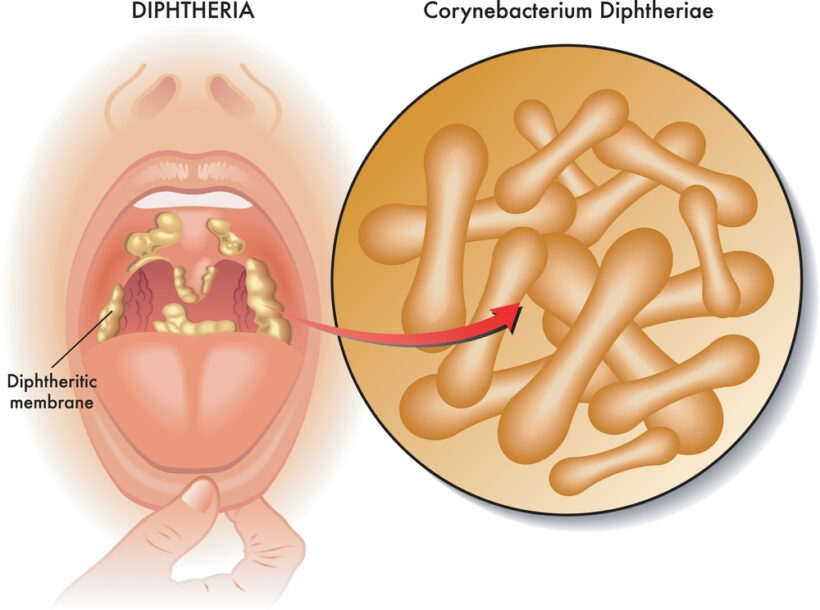Do you know that Diphtheria was referred to as the ‘Strangling Angel of Children’ This was because of the presence of wing-shaped, thick, gray coating called a “pseudomembrane” that formed in the throat
Diphtheria is a highly contagious bacterial infection that dates back to the 4th Century BC. It affects the nose and throat, and sometimes the skin.
It can be a fatal illness, especially in children, luckily vaccination prevents this
Moreover, in January 2023, the Nigeria Centre for Disease Control and Prevention issued a Public Health Advisory against Diphtheria Outbreak, so please read along
Who are at risk of getting Diphtheria?
People at risk includes;
- Healthcare workers exposed to suspected/confirmed cases
- People who did not get any or a single dose of the five-in-one ‘pentavalent’ vaccine
- Individuals who live within a crowded environment.
- People that stay in places with poor sanitation.
How Does it spread?
Diphtheria is a highly contagious bacterial infection caused by Corynebacterium diphtheriae. It releases exotoxin which can affect the Heart, Nerves, and Kidneys.
It is spread via:
- Droplets from coughs and sneezes
- Close contact with someone infected.
- Lastly, via contact with contaminated objects e.g cups, cutlery, clothing, or bedding
Usually, the onset of signs and symptoms starts after 2 – 10 of exposure to the bacteria and include;
- Fever
- Sore throat
- Runny nose
- Red eyes (Conjuctivitis)
- Neck swelling
Also, in severe cases, a thick grey or white patch appears on the tonsils and/or at the back of the throat associated with difficulty breathing.
How is this Diagnosed and Treated
A definite diagnosis requires a culture from the secretions of an infected individual
Therefore, anyone who has the above symptoms should isolate oneself and notify the NCDC through their toll-free line (6232) or present to the nearest hospital if unwell
Confirmed cases of Diphtheria and their close contacts can be treated early with antibiotics and antitoxins if indicated. So therefore, remember, early presentation is key
How can Diphtheria be prevented?
The simple and effective means of preventing this infection is through VACCINATION
To conclude, parents and caregivers should ensure their wards are fully vaccinated against Diphtheria with 3 doses (given at the 6th, 10th, and 14th week of life) as recommended by the National Programme of Immunization schedule
So, don’t forget to share this with your loved ones!




